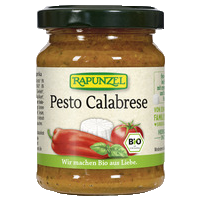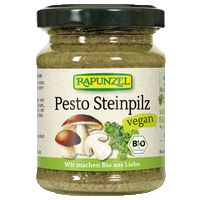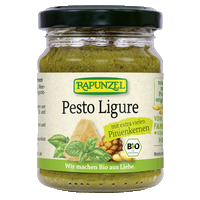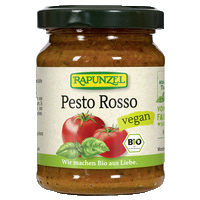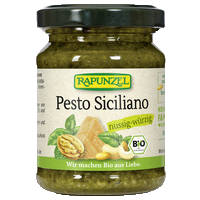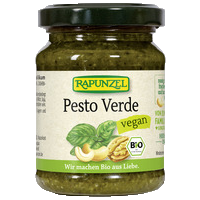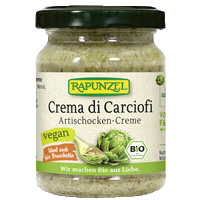Traditional pesto comes from the Liguria region in Italy. Pesto is a raw, uncooked spice paste that is often mixed with pasta or gnocchi.
Rapunzel pestos are traditionally made in a family-owned company in Italy. Ingredients, such as basil, cheese and pine nuts, sea salt and all the vegetables that are used for making red pestos also come from Italy. The pesto manufactory manually processes the high-quality raw materials.
Rapunzel pestos are traditionally made in a family-owned company in Italy. Ingredients, such as basil, cheese and pine nuts, sea salt and all the vegetables that are used for making red pestos also come from Italy. The pesto manufactory manually processes the high-quality raw materials.
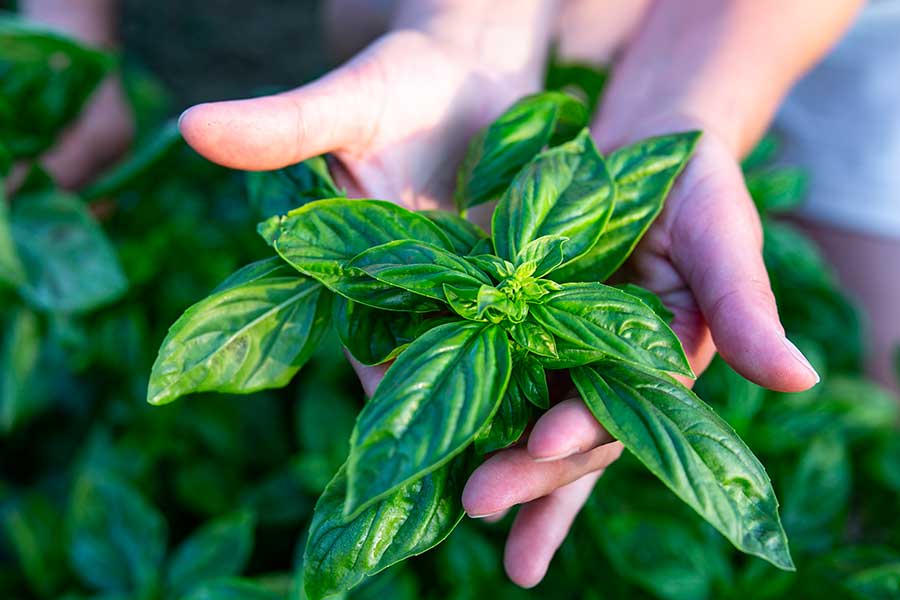
Classic pesto Genovese is made only with basil, cold-pressed olive oil, pine nuts, garlic, pecorino and parmesan and some salt. Basil has its greatest seasoning action when freshly harvested. Dried basil loses most of its typical aroma.
The classic pesto recipes vary depending on the region. Instead of basil, also wild garlic, estragon, dandelion, spinach or parsley may be used as a base. Olives, mushrooms or peppers are also popular ingredients. If dried tomatoes are used as main ingredient, one speaks of pesto rosso (red pesto). The addition of nuts gives pesto a creamy consistency. Classic pesto is made with Sardinian pecorino or parmesan. There are also vegan pesto variations without cheese.
Production, processing and consumption of pesto
It is best when the basil is washed immediately after the harvest, air-dried and crushed with some olive oil. In the next step, the basil is combined in a mixer with nuts, grated cheese, olive oil and other ingredients until it has the right consistency.
Depending on the recipe, tomatoes, porcini mushrooms, pepper, spices or aromatic herbs are added. Subsequently, the pesto is filled into jars. In the end, a dash of olive oil is added in order to preserve the pesto for as long as possible. Finally, the jars are pasteurized.
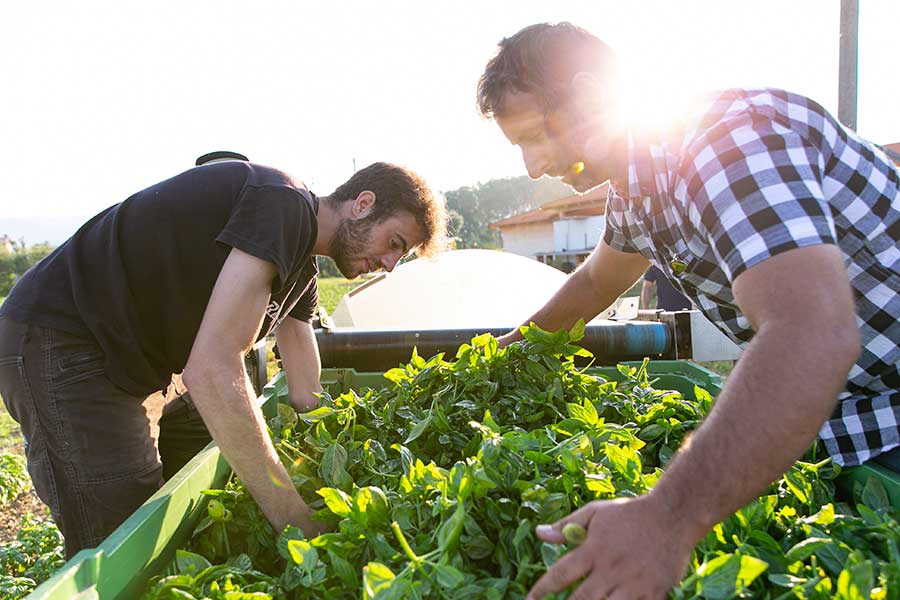
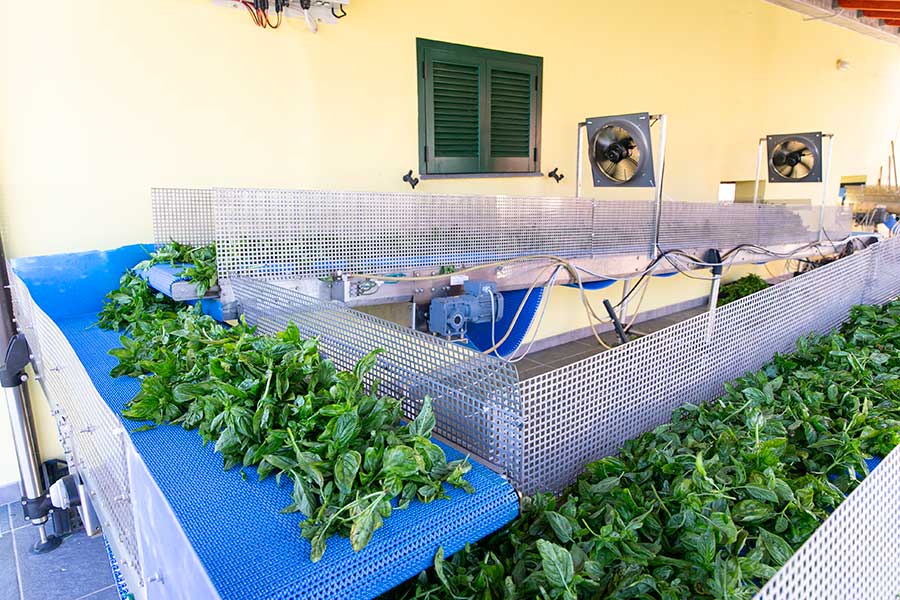
Pesto is eaten with pasta. Spaghetti, for example, take up pesto especially well, but also tagliatelle and torchietta can be eaten with pesto. In Liguria, pesto is often served with traditional trofie and testaroli pasta.
Pesto also tastes great as savory bread spread - this is how the ancient Romans apparently consumed pesto. When used as spice paste, pesto especially refines Mediterranean vegetable dishes and sauces.
Pesto also tastes great as savory bread spread - this is how the ancient Romans apparently consumed pesto. When used as spice paste, pesto especially refines Mediterranean vegetable dishes and sauces.
Tip: once the pesto jar is opened, it must be refrigerated and should be consumed rather quickly. A layer of olive oil on top of the pesto protects the pesto against oxygen and will keep the opened pesto for a longer time.
By the way: good pesto is made with high-quality ingredients. Low-cost mixtures replace extra virgin olive oil with sunflower oil and may use different, cheaper cheese and nuts. It is worth to take a close look at the list of ingredients.
By the way: good pesto is made with high-quality ingredients. Low-cost mixtures replace extra virgin olive oil with sunflower oil and may use different, cheaper cheese and nuts. It is worth to take a close look at the list of ingredients.
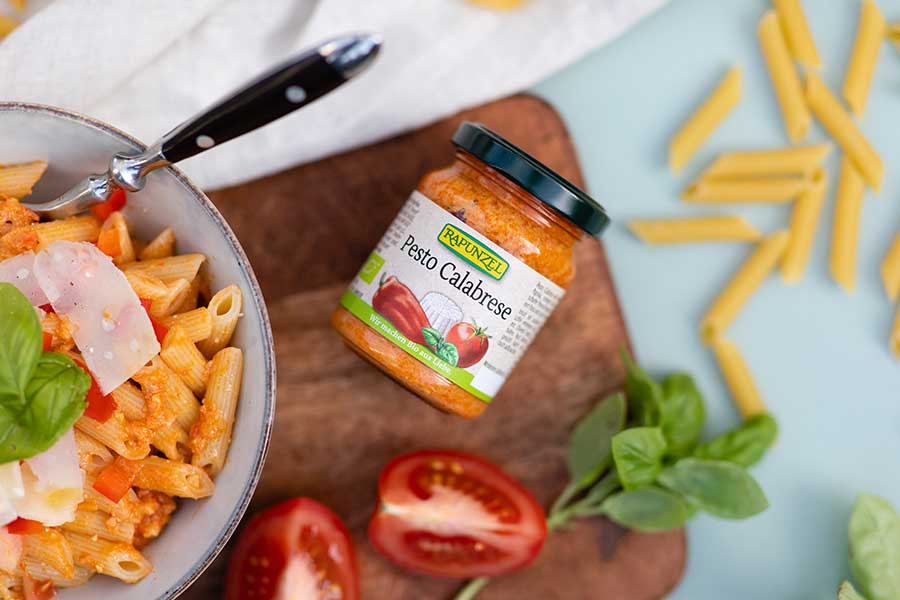
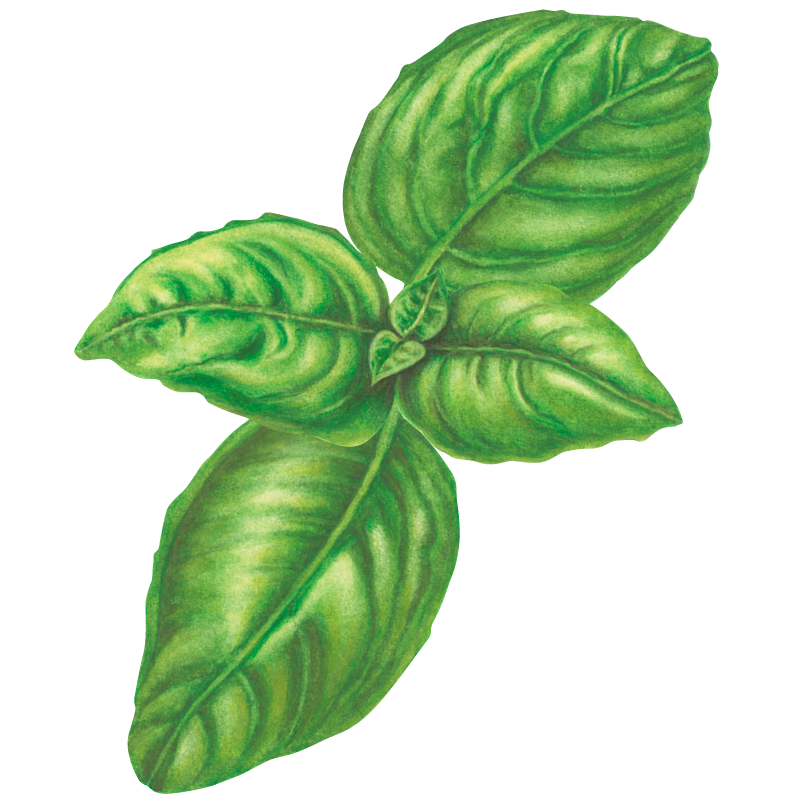
What makes Rapunzel pesto so special
- traditionally manufactured in Italy
- careful processing
- high-quality ingredients
- original Genovese basil from Liguria
- made exclusively with organic, extra virgin olive oil
- original parmesan and pecorino with indication of origin
- also vegan recipes available
The history of pesto
Pesto originally comes from Italy. The first proof for the aromatic spice paste is found in a recipe book from 1863. The roots of pesto, however, probably date back to Ancient Rome. At that time, cold spice pastes such as moretum, a cheese sauce with herbs, were already known. Another Roman sauce, the so-called garum with its oil base is also often thought to be the original pesto.
Pesto became really popular in the United States when actor Frank Sinatra advertised an American pesto manufacturer.
Pesto was brought to Germany in the 1060s when the first Italian guest workers came into the country. At the time, many Italian restaurants opened featuring Spaghetti al pesto on their menus.
Pesto was brought to Germany in the 1060s when the first Italian guest workers came into the country. At the time, many Italian restaurants opened featuring Spaghetti al pesto on their menus.


